Customer Data

What are the benefits of using data encryption in business ?
Data encryption in business offers protection of sensitive information, compliance with legal requirements, enhanced customer trust, defense against cyber threats, and controlled data access. It ensures confidentiality and integrity of communications, helps meet regulatory standards, safeguards personal data, builds customer confidence, mitigates risks of data breaches, guards against malware and ransomware, provides role-based access control, and simplifies key management. This makes encryption an essential tool for securing digital assets and strengthening a company's market position.

How can automation be used to improve customer service ?
Automation can significantly enhance customer service by streamlining processes, reducing errors, and providing consistent support. It enables personalized communication through chatbots and email automation, efficient processes via self-service options and backend automation, a consistent experience with standardized responses, cost-effective solutions through scalability, and continuous improvement using feedback loops. As technology progresses, the potential for automation in customer service will continue to expand, leading to more innovative ways to meet customer needs.

How does Fintech improve customer experience in banking ?
Fintech has transformed the banking industry by providing innovative solutions that improve customer experience. It offers personalized services, faster transactions, enhanced security, and innovative features. Fintech companies provide a seamless user interface, personalized financial advice, customized products, faster transactions, instant access to information, streamlined processes, robust security measures, transparent fees, regulatory compliance, mobile payments, peer-to-peer lending, crowdfunding, and exploration of cryptocurrencies and blockchain technology. These advancements have significantly improved customer experience in banking and will continue to shape the future of banking as technology evolves.

Why is data privacy important ?
Data privacy is crucial in the digital age, protecting individuals and benefiting organizations. It ensures control over personal information, prevents misuse, and builds trust. Organizations mitigate risks, gain customer loyalty, and comply with laws by prioritizing data privacy. Key principles include transparency, individual control, data minimization, and security measures. Data privacy will continue to shape the relationship between individuals and technology, balancing innovation and privacy rights.
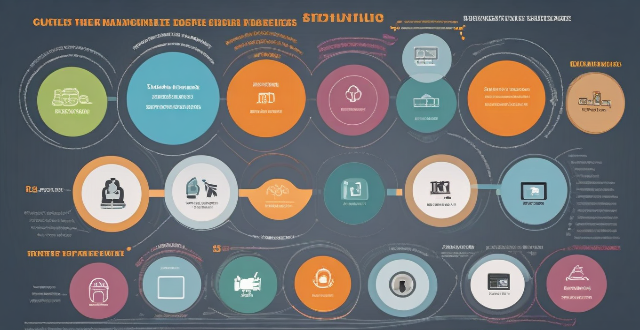
What are some common ways that companies collect and use personal data ?
Companies employ various direct and indirect methods to collect personal data, which they then use for marketing, product development, enhancing customer experiences, and ensuring security.

How can sports marketing help to build customer loyalty ?
Sports marketing is a powerful tool that can build customer loyalty by leveraging the emotional connection between fans and their favorite teams. Strategies include sponsorships, promotions, giveaways, and social media engagement to create a sense of shared identity and community among customers. Examples include Nike's sponsorship of the Brazilian national football team, Coca-Cola's partnership with the Olympic Games, Budweiser's "Up for Whatever" campaign, McDonald's "McRib" promotion during the World Series, ESPN's social media presence, and Red Bull's extreme sports content on social media channels. By establishing themselves as trusted partners of popular sports teams and events, businesses can increase customer loyalty and brand recognition.

How do I contact customer service for my mobile operator ?
How to Contact Customer Service for Your Mobile Operator

How do companies collect and use my personal data online ?
Companies collect and use personal data online for various purposes, including marketing, advertising, customer service, and improving their products or services. They do this through cookies and tracking technologies, social media platforms, email marketing, and customer service interactions. By analyzing this data, companies can gain insights into user behavior and preferences, which they can use to improve their products or services and target users with personalized advertising.

How can I compare different online shopping sites for their customer service ?
In this article, we discuss how to compare different online shopping sites for their customer service. The first step is to research and gather information by reading reviews and testimonials, checking social media presence, and asking for recommendations from friends or family. The second step is to analyze the information by comparing customer service options, evaluating response time, and assessing quality of service. The final step is to make a decision based on weighing pros and cons and trying before you buy. By following these steps, you can choose an online shopping site that offers excellent customer service and meets your needs.

How can I check my data usage on my current mobile operator's plan ?
This is a step-by-step guide on how to check your data usage on your mobile operator's plan. The first step is to access your mobile operator's self-service portal and log into your account. Once logged in, navigate to the data usage section where you can find information about your current balance, recent transactions, and data usage. The second step is to use USSD codes provided by some mobile operators that allow you to dial a code from your phone to get information about your data usage. Follow the instructions carefully after dialing the USSD code. The third step is to check through SMS by sending a specific message to a specific number provided by your mobile operator. You will receive a response message with details about your remaining data balance and validity period. If none of these methods work, you can contact customer support by calling or chatting with them online. They may ask for some verification details before providing the information. Lastly, you can use third-party apps available on app stores that can help you track your data usage and provide regular updates.
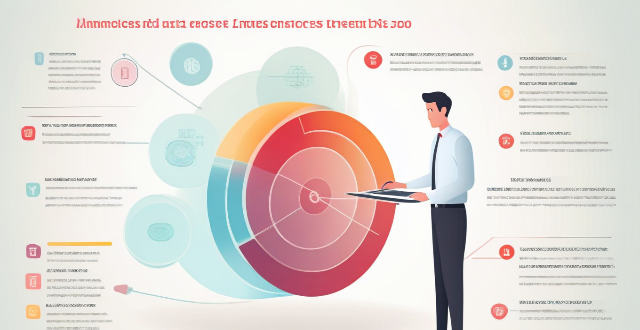
How does network expansion impact customer experience ?
Network expansion improves customer experience by increasing coverage, reducing disconnections, boosting speed and reliability, and enhancing accessibility to services and devices.

Which shopping apps have a strong focus on customer service and support ?
The provided text discusses the importance of customer service and support in shopping apps. It then goes on to highlight five notable shopping apps—Amazon, Shopify, Etsy, eBay, and Alibaba—that prioritize these aspects. Each app is described in terms of its unique features and services that enhance user experience. For Amazon, it's the live chat and email support, 24/7 availability, and the Mayday button for Fire devices users. Shopify is praised for its multichannel support, extensive knowledge base, and active community forums. Etsy is lauded for its personalized assistance, seller education, and resolution center. eBay's detailed resolution process, security measures, and seller protections are highlighted. Lastly, Alibaba is commended for its Trade Assurance program, legal services, and supplier verification. In conclusion, these shopping apps understand the significance of supporting their users throughout the shopping journey, each offering unique strengths in customer service and support.

What kind of customer feedback has been received so far for the new product ?
The new product has received mostly positive feedback, withThe new product has received mostly positive feedback, with user-friendly interface, speed However, there have been concerns about compatibility issues, software bugs, and pricing. Some customers also mentioned the need for additional features and improvements in customer support services. Overall, the feedback will be used to make necessary improvements and meet customer expectations.

Can you explain the concept of 'data minimization' in data protection laws ?
Data minimization is a crucial principle in data protection laws that requires organizations to collect and process only the minimum amount of personal data necessary for specified, explicit, and legitimate purposes. This concept aims to protect individuals' privacy by limiting the potential harm that can result from the misuse or breach of their personal information. Key aspects of data minimization include collection limitation, purpose specification, data retention, data security, and accountability and transparency. Implementing robust security measures is crucial to ensure the confidentiality, integrity, and availability of personal data. Adhering to data minimization principles helps organizations comply with various data protection laws, fosters trust between individuals and organizations, reduces the risk of privacy breaches and violations, mitigates potential damage caused by cyberattacks or data breaches, and leads to cost savings for organizations due to reduced storage requirements and associated management costs.

Is data encryption necessary for all types of businesses and industries ?
The Importance of Data Encryption in Modern Business Operations Data encryption is a crucial aspect of modern business operations, ensuring confidentiality, integrity, and availability of sensitive information. Different types of businesses and industries handle varying degrees of sensitive data, requiring robust security measures. Healthcare, finance, e-commerce, and legal sectors are examples where encryption is necessary due to the nature of the data they handle or regulatory requirements. However, the necessity of implementing encryption can depend on factors such as the type and amount of sensitive data, risk assessment, and compliance with legal requirements. To implement data encryption, businesses must assess their needs, develop a data protection policy, choose appropriate technologies, integrate them into systems and processes, and regularly monitor and maintain these measures. While not always necessary for every business, data encryption is often a wise investment that can protect sensitive information and ensure business continuity.

How do retailers benefit from offering a buy one get one free promotion ?
Retailers can benefit from offering a "buy one get one free" (BOGO) promotion by attracting new customers, increasing sales, managing inventory more effectively, enhancing brand perception, and collecting valuable customer data. This marketing strategy not only boosts short-term revenue but also helps build long-term customer loyalty and brand equity.
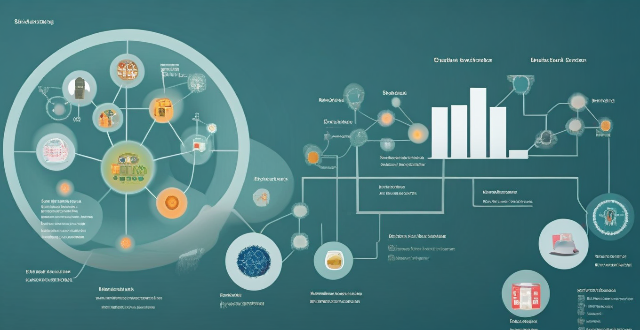
What are the requirements for obtaining consent under data protection laws ?
To obtain valid consent under data protection laws, organizations must adhere to specific requirements. These include providing clear and concise information about the data processing activities, ensuring that consent is freely given without pressure or coercion, making the consent specific and unambiguous for each purpose of data processing, informing individuals about their rights under data protection laws, and maintaining ongoing transparency and open communication. By following these guidelines, organizations can protect individuals' rights and privacy while building trust with their customers.

What is data privacy ?
Data privacy is the protection of personal information from unauthorized use. It's important for individual rights, building trust, legal compliance, and risk mitigation. Principles include data minimization, anonymization, encryption, transparency, consent, access control, retention, integrity, and accountability. Best practices involve regular audits, employee training, updating policies, secure systems, and response plans for data breaches.

What are the penalties for non-compliance with data protection regulations ?
Non-compliance with data protection regulations can result in significant penalties, including fines, legal action, and damage to a company's reputation. The specific penalties depend on the jurisdiction and the severity of the violation. Some common consequences include: - Fines and Financial Penalties: GDPR violations can result in fines up to €20 million or 4% of global annual turnover for less severe infringements, and up to €40 million or 8% of global annual turnover for more serious violations. CCPA violations can result in fines up to $2,500 per violation for each time a Californian resident's rights are violated, and up to $7,500 per violation if the violation involves selling or sharing personal information without consent. - Legal Action: Class action lawsuits initiated by individuals or groups may claim damages for non-compliance, with potential for large settlements depending on the number of affected parties and the severity of harm caused. Government investigations may involve possible subpoenas and audits to assess compliance levels and potential violations, as well as enforcement actions such as cease and desist orders or demands to implement corrective measures. - Reputational Damage: Loss of trust from customers when data breaches occur can erode customer faith in a company's ability to protect their information, and negative publicity from data misuse can permanently harm a company's brand image. Difficulty in partnerships and deals may arise, with other companies ending collaborations due to associated risks, and potential investors being wary of putting money into a company with known compliance issues. - Market Access Restrictions: In extreme cases, a company might be prohibited from handling certain types of data, and some regions might restrict entry to companies that have a history of non-compliance. - Corrective Measures and Costs: Technical and organizational changes may be required, such as upgrading systems to ensure compliance with technical standards like encryption and security protocols, and employee training to improve understanding of data protection laws and best practices. Legal fees for representation in legal proceedings or during investigations, and settlement payments to resolve class action lawsuits or government enforcement actions, may also be necessary. It is crucial for organizations to prioritize data protection compliance as part of their business strategy to avoid these adverse effects.

Is network slicing secure for sensitive data transmission ?
Network slicing is a technology that allows multiple virtual networks to coexist on a shared physical infrastructure, enabling service providers to offer customized services with different QoS requirements. While network slicing offers numerous benefits such as customization, resource allocation, scalability, and isolation, there are also potential security concerns that need to be addressed. These include data isolation, access control, encryption, and intrusion detection and prevention systems (IDPS). By implementing robust isolation mechanisms, access control policies, strong encryption algorithms, and effective IDPS, service providers can leverage network slicing while maintaining the security of sensitive data transmission.

How is AI changing the field of finance and banking ?
AI is revolutionizing the finance and banking industry by improving efficiency, accuracy, and customer experience while streamlining risk management processes. AI-powered algorithms can analyze vast amounts of data quickly and accurately, leading to faster and more informed decisions. Automated processes save time and reduce human error. Fraud detection is enhanced by analyzing patterns in customer behavior and transactions. Personalized customer experience is provided through detailed profiling and predictive analytics. Risk management is streamlined with credit risk assessment and market risk analysis.

How does data encryption affect computer performance ?
Data encryption is crucial for securing data but can affect computer performance by increasing processor load, memory usage, disk I/O, network latency, and reducing battery life.

Why is data encryption important for online security ?
Data encryption is crucial for online security, protecting dataData encryption is crucial for online security, protecting data the financial impact of breaches It has evolved from ancient uses to a critical tool in today's digital landscape, with AI optimizing key management and enhancing algorithms.

What are some creative ways to display data in an infographic ?
The text describes various creative ways to display data in an infographic, including: 1. **Use Colors and Shapes**: Colors and shapes can be used to create contrast and highlight important information. Different colors and shapes like circles, squares, or triangles can represent different categories or values of data. 2. **Incorporate Charts and Graphs**: Bar charts, line graphs, pie charts, heatmaps, or treemaps are great for displaying numerical data in an infographic. They help in comparing sales figures, showing trends over time, or illustrating proportions. 3. **Tell a Story with a Timeline**: A timeline helps viewers understand how events unfolded over time, especially useful for historical data or processes that have multiple steps. 4. **Use Icons and Symbols**: Icons and symbols convey information quickly without words and add visual interest to the infographic. Examples include checkmark icons, warning signs, or arrow icons. 5. **Include Maps and Geographic Data**: If the data has a geographic component, incorporating maps can be very effective. This could be world maps, regional maps, or even custom maps for specific locations. 6. **Add Interactive Elements**: Interactive elements such as clickable sections that reveal more details or animations that bring the data to life can make the infographic more engaging. 7. **Use Text Sparingly but Effectively**: Well-placed text provides context and explanation where needed. Clear typography and avoiding clutter with too much text is crucial. By using these methods, one can create an infographic that presents data clearly while also captivating and informing the audience.
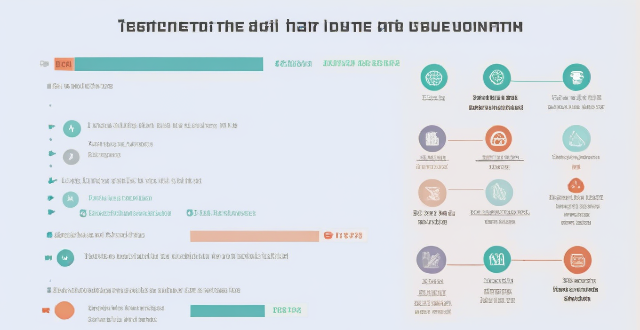
How does AI technology contribute to analyzing product reviews ?
AI technology has revolutionized the way businesses analyze product reviews by providing advanced tools and techniques that enable efficient and accurate analysis. From natural language processing and machine learning to deep learning, AI offers various approaches to extracting valuable insights from customer feedback. By leveraging these technologies, businesses can gain a deeper understanding of customer needs and preferences, identify areas of improvement, and make data-driven decisions that drive growth and success.
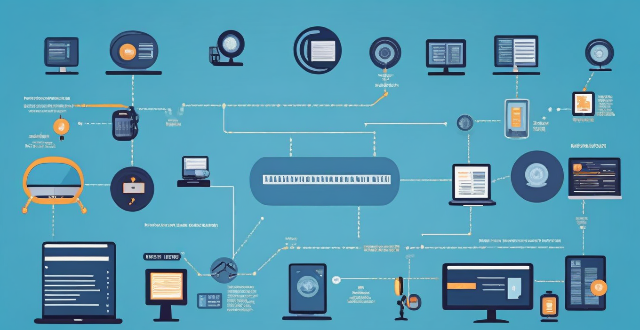
What are the benefits of having an unlimited data plan ?
An unlimited data plan offers benefits such as no data caps or overage charges, the ability to stream videos and music without worrying about data usage, using multiple devices simultaneously, working from anywhere, enjoying online gaming and social media, and better value for money.

How do data protection regulations handle sensitive personal data ?
Handling sensitive personal data under data protection regulations requires strict adherence to principles such as consent, minimization, purpose limitation, and security. Regulations like the GDPR in the EU, CCPA in the US, and PIPEDA in Canada impose specific conditions for processing sensitive information. Organizations must adopt best practices including assessment, privacy impact assessments, employee training, access controls, and monitoring to ensure compliance and protect individuals' privacy rights.

What factors determine the ranking of an online shopping website ?
The ranking of an online shopping website is determined by several factors, including user experience (navigation, search functionality, page load speed, mobile optimization), product quality and variety (descriptions, images/videos, variety), price competitiveness (pricing, promotions/discounts, price comparison tools), security and privacy (payment options, privacy policies, data protection), customer service (support, order tracking, returns process), and reviews and ratings (customer reviews, rating systems, feedback mechanisms). By focusing on these key areas, websites can improve their rankings and attract more customers while providing a seamless shopping experience.

What is the difference between data privacy and data protection ?
The text discusses the difference between data privacy and data protection, emphasizing that understanding these concepts is crucial for managing personal information responsibly. Data privacy focuses on individual rights to control personal information, while data protection emphasizes organizational measures to safeguard that information. Both are essential for building trust and ensuring responsible data handling.